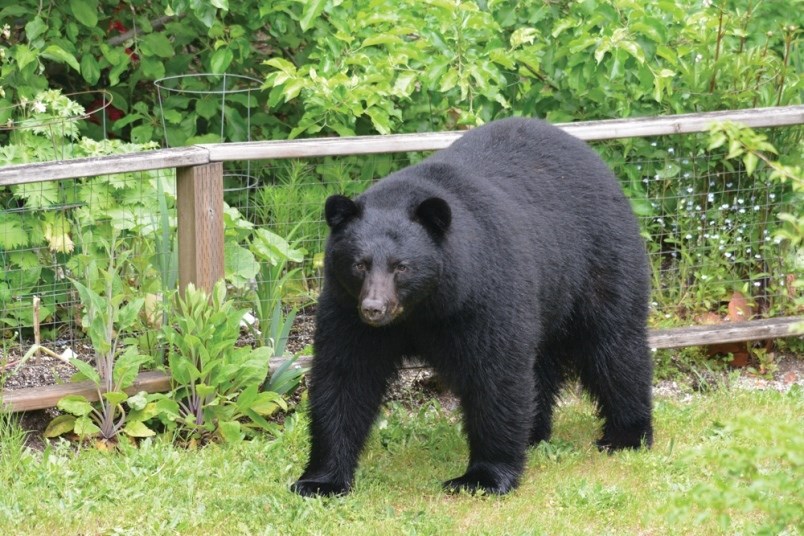Port Coquitlam is considering getting tougher on scofflaws who leave food waste containers open for bears as it seeks to reduce calls and complaints about bruins getting into garbage.
Whether you’re a restaurateur with an open grease container, a waste hauler that uses plastic bins or a homeowner who leaves garbage out all day, you could be targeted for $500 fines as Port Coquitlam clamps down on bear hazards.
On Tuesday (May 26), PoCo councillors said enforcement and compliance are necessary to crack down on bear problems in the city.
And while they weren’t prepared to spend $25,000 on staff to write-up another report in a process to achieve Bear Smart status, councillors passed a motion seeking bylaw amendments that would require commercial haulers to provide bear resistant metal bins with locks to businesses and multi-family complexes.
SOME IGNORE BYLAWS
Councillors also suggested enforcement — not more education and reports — was needed to ensure compliance.
“I think we’ve talked this to death, and to me what we need to do now is to actually put [words into] action,” said Coun. Steve Darling.
Other councillors agreed, suggesting the city needs to replace its own open garbage cans in the city’s downtown, crack down on open food grease containers that attract bruins, and ensure that residents in homes and strata complexes secure their trash.
“The amount of education that is out there now is plenty and we still have people that feed bears — they still go out there and feed bears — and it comes down to enforcement,” said Coun. Darrell Penner.
“We’ve spent millions of dollars on trying to secure our garbage cans and educate our citizens,” said Coun. Dean Washington, noting that “law abiding citizens, are gong to do that, make sure they’ve done all the right things.”
However, one councillor suggested enforcement may not be the only tool. Coun. Laura Dupont suggested that neighbourhoods that secure their trash and don’t have bear issues should be recognized.
“What about kudos to neighbourhoods that are doing good job? Maybe there could be a bit of a more positive approach instead of being punitive,” she suggested.
WHAT ABOUT BURKE MOUNTAIN?
However, Dupont acknowledged that the city may be doing too much light-stepping around the problem and may have to get tougher, especially when it comes to dealing with open grease bins outside restaurants and unlocked or flimsy plastic dumpsters.
In the last five years, there have been 3,700 complaints about bears in PoCo and 26 bear deaths due to habituation to humans and the potential for conflict. The city is looking at getting Bear Smart status, as Coquitlam has done, to formalize procedures for reducing human/bear conflict, including at schools and parks.
GARBAGE PROMPTS COMPLAINTS
However, several councillors balked at laying out $25,000 for a Bear-Human Conflict Management Plan to identify and prioritize actions and strategies that address hazards outlined in the Bear Hazard Assessment.
According to the assessment, garbage is the type of attractant that is most often identified when callers report bear sightings to the Report All Poachers and Polluters (RAPP) line.
Mayor Brad West questioned whether development on Burke Mountain that is displacing bears could be part of the problem.
“I looked in vain in to see any reference to Burke Mountain and the development that’s occurred up there in the report,” said West.
“Is its absence from this an indication that it’s not really been a factor? Because certainly it continues to be in its infancy of its development. There is still significant development to come on Burke Mountain. To what degree is that going to continue to be a factor if at all?” West asked.
He was told that there has never been a definitive study on the impact of Burke Mountain development on bears in the Tri-Cities.
Urban forestry technician Scott Walmsley said that while a study hasn’t been done, development is definitely “a factor.”
Meanwhile, city staff are expected to bring forward a cost estimate for following up on priorities among the 36 recommendations of the bear hazard report.
Bear family photographed in Port Coquitlam tree a public reminder to monitor surroundings https://t.co/h0Ano7oIpY pic.twitter.com/bOm3mI3dHx
— The Tri-City News (@TriCityNews) May 27, 2021





